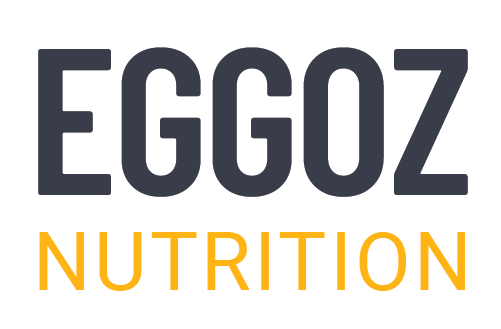Have you ever wondered how Zinc affects your health, or what happens when you don't get enough?
Understanding the function of Zinc in the body is key to recognizing its importance.
Whether it's helping with growth, maintaining the immune system, or influencing hormone levels, Zinc is indispensable for overall wellness. But how can you ensure you're getting enough from your diet, and what are the signs of a deficiency of Zinc? Let’s dive into the answers.
Functions and Benefits of Zinc
- Supports Immune Function
One of the most well-known roles of Zinc is its ability to boost immune health. Zinc is a major player in the function of over 300 enzymes in the body, many of which are involved in the immune response. Without sufficient Zinc, the body struggles to fight off infections, making it harder to fend off colds, flu, and other illnesses.
- Promotes Wound Healing
Zinc is also vital for wound healing. It plays a role in cell growth, tissue repair, and skin integrity. Individuals having insufficient Zinc levels may face delayed wound healing. Whether it's a small cut or a larger wound, having enough Zinc in your system helps ensure that the body can repair itself quickly. This is why Zinc supplements are often recommended for individuals recovering from surgeries or injuries.
- Enhances Growth and Development
Zinc is vital for growth and development, specifically in teenagers and children. The function of Zinc in the body extends to the synthesis of proteins and DNA, both of which are necessary for cell growth and division. A deficiency of Zinc can lead to stunted growth, developmental delays, and even problems with cognitive function. Pregnant women are often advised to monitor their Zinc intake to ensure the healthy development of the fetus.
- Boosts Brain Function
Your brain also depends on Zinc to function properly. Zinc is found in high concentrations in the brain and plays a critical role in neuron communication. A Zinc deficiency can impair cognitive function, memory, and learning. Some studies even suggest that adequate levels of Zinc may help protect against cognitive decline in older adults.
- Regulates Hormonal Balance
Zinc is crucial for the regulation of hormones like insulin, testosterone, and thyroid hormones. Maintaining a balanced level of these hormones is essential for many bodily functions, including metabolism and reproductive health. In men, a Zinc deficiency can lead to decreased testosterone levels, affecting everything from energy levels to fertility.
What are the Symptoms of Zinc Deficiency?
Zinc is an essential mineral that supports numerous functions in the body, and a deficiency of Zinc can lead to several health issues. Below are prevalent indicators of Zinc deficiency:
- Delayed wound healing
- Loss of appetite or weight loss
- Hair thinning or hair loss
- Skin rashes, including acne or eczema
- Poor sense of taste or smell
- Impaired growth and development in children
- Cognitive difficulties and memory problems
Recognizing these signs early can help prevent long-term health complications.
Daily Required Zinc Intake for Men and Women
To reap the benefits of Zinc, it’s important to know how much you need. The daily recommended Zinc dosage varies based on age and gender:
- Men: 11 mg per day
- Women: 8 mg per day
- Pregnant as well as breastfeeding women: 11-12 mg per day
A balanced diet should provide sufficient Zinc, but for individuals with Zinc deficiency or specific health needs, supplements may be necessary. Always consult with a healthcare professional before adjusting your Zinc dosage or taking Zinc supplements
Zinc Foods: How to Incorporate More Zinc into Your Diet
Consuming a Zinc-rich diet ensures adequate Zinc intake. Here’s how you can include more Zinc in your daily meals:
- Protein-Packed Eggs
One day fresh eggs are a fantastic source of essential nutrients, including Zinc. Whole eggs, particularly the egg yolk, are a Zinc-rich food that is easy to incorporate into breakfast, lunch, or dinner. They also contain other vital nutrients like Vitamin D in eggs, Omega-3 fatty acids, and high-quality amino acids. Not only do protein-packed eggs contribute to muscle repair, but they also help ensure that your Zinc levels remain adequate. Don’t skip the egg whites, though—they’re rich in protein too!
- Meat and Poultry
Red meats, such as lamb, are among the best Zinc food sources. A 100-gram serving of beef can provide almost half of the recommended daily Zinc dosage. Poultry, such as chicken and turkey, also contains significant amounts of Zinc, though to a lesser degree than red meat.
- Legumes
Chickpeas, lentils, and beans are nutritious plant-based foods. Plant-based Zinc is less quickly absorbed than animal-based Zinc, so you may need to eat more to meet your daily needs. These foods are excellent when paired with a diet that includes other Zinc foods.
- Nuts and Seeds
Nuts like almonds, cashews, and seeds such as pumpkin seeds are great Zinc food sources. Including these as snacks or in meals helps ensure you’re getting a range of nutrients.
Conclusion
Zinc plays a pivotal role in maintaining many aspects of your health, from supporting the immune system to regulating hormones and aiding in growth and development. Ensuring that you consume a variety of Zinc food sources—such as Eggoz eggs, meat, legumes, nuts, and seeds—will help you maintain optimal health. Keeping your Zinc levels in check is a surefire way to support your overall well-being. With a balanced approach to diet, you can easily meet your daily Zinc requirements.


